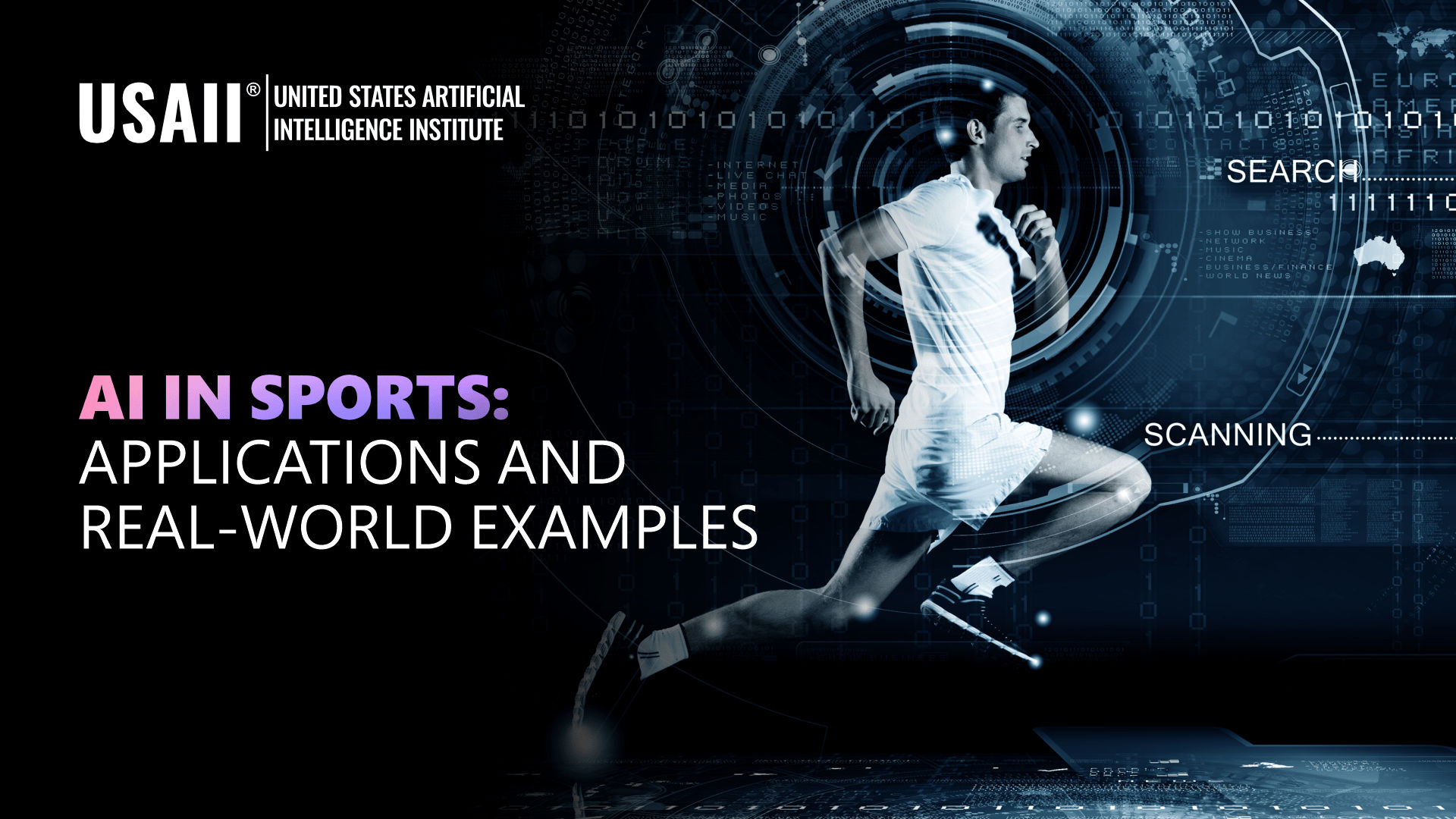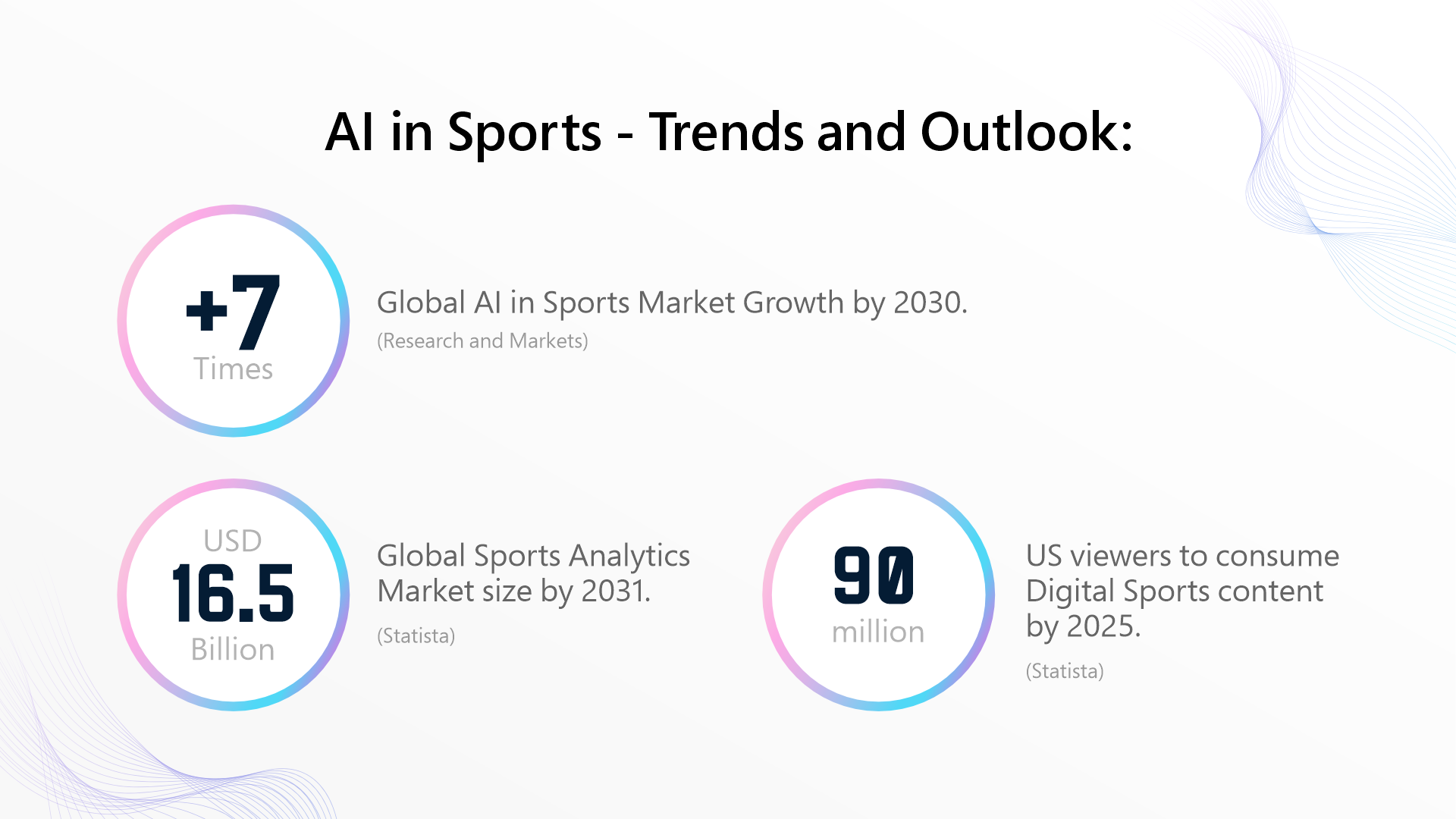
There is a new player in the ever-evolving and changing landscape of sports. This one does not wear sports shoes or a jersey, but comprises bits and bytes. It breaks down, records, analyzes, and even predicts the most probabilistic outcome. Brad Pitt starred in a movie about it and ever since, the understanding of statistics and algorithms in movies has only expanded exponentially.
Welcome to the confluence of Sports and Artificial Intelligence. A match truly made in heaven for sports fans. AI has now transcended the world of fiction and invaded the world of professional sports. And the resulting revolution? From fan bases to player performance, everything is at stake here. According to some, it is the very way we approach, analyze, and experience sports.

We understand that sports fans may be elated or disappointed at the very least, at the idea of turning their favorite time and turning it into a science, something that is very controversial in the world of sports right now:
From predictive analytics to personalized training regimens, AI is making a significant impact on the sports industry. Here’s a look at the top use cases, real-life examples, and the challenges of adopting AI in sports.
Top Use Cases
Player Performance Analysis – AI power analytics are increasingly being adopted by coaches and trainers to optimize, identify areas of Improvement, and develop customized coaching plans
Injury prevention and Protection – AI algorithms analyze player analyze player data to predict downtimes, reducing downtime and improving overall team performance.
Game Strategy and Tactics - AI assists coaches in developing game plans, analyzing opponent strengths and weaknesses, and making data-driven decisions during games.
Fan Engagement and Overall Experience- AI-powered chatbots, virtual assistants, and personalized content enhance fan engagement, providing a more immersive experience.
Referee Assistance – AI helps officials make accurate calls, reducing errors and controversy.
Scouting and Recruitment – AI is entirely changing the scouting and recruitment process for sports teams, by analyzing analysis on potential recruits
Broadcasting and Media- AI-driven systems are being used to automate high-quality reels, and generate real-time statistics and even commentary. This enhances the entire viewing experience besides producing content more effectively.
Real-Life Examples
Challenges In Adoption
Though the challenges are many and multi-faceted, the adoption of AI in sports has yet to see a setback. However, the adoption of AI in sports faces a multitude of challenges:
Glancing Into the Future of AI in Sports
As AI technologies continue to advance in leaps and bounds, even more innovation is expected to be seen in how sports are played and consumed. These include, but are not limited to:
Finally, Meet the Game Changers
Concluding our exploration of AI in Sports and its future, it's crucial to recognize the pivotal role played by professionally certified AI experts in driving this revolution. These individuals, armed with a unique blend of statistical expertise, programming skills, and domain knowledge, have been instrumental in translating raw data into actionable insights that have reshaped the sporting landscape.
Follow us: